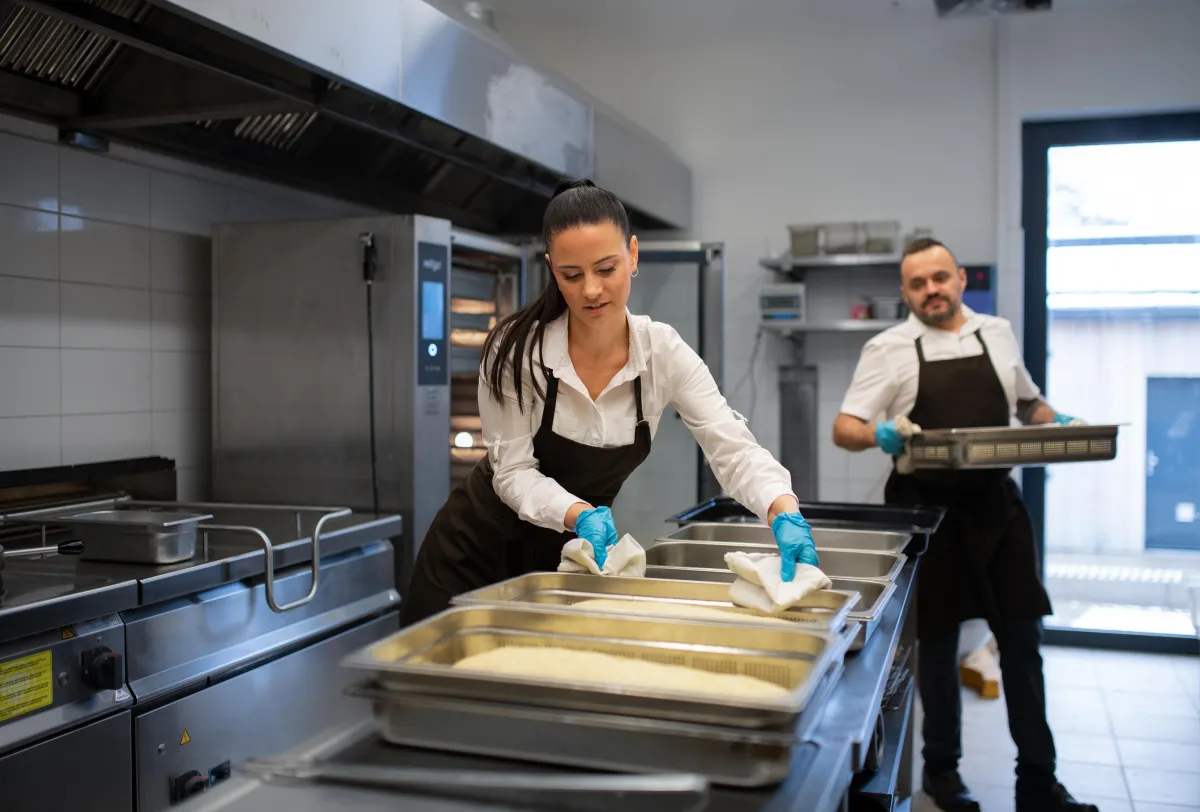
How a Cloud Kitchen Reduces Waste & Supports Sustainability
The food industry is often associated with significant waste, from food scraps to packaging. However, cloud kitchens, with their unique operational model, have the potential to contribute to a more sustainable food ecosystem. Here's how:
1. Optimized Inventory Management:
Cloud kitchens, focused solely on delivery, can predict demand more accurately than traditional restaurants.
By analyzing order data and delivery patterns, they can optimize inventory, reducing over-purchasing and food waste from unsold ingredients.
2. Streamlined Operations:
Without a dining area, cloud kitchens can streamline their operations, minimizing potential waste in several ways:
Less food preparation error, as the focus is on a delivery-friendly menu.
Reduced waste from plate garnishes or uneaten buffet items.
3. Sustainable Packaging:
Cloud kitchens often prioritize delivery, giving them more control over packaging choices. This allows them to:
Utilize eco-friendly, compostable, or recyclable packaging materials.
Minimize packaging waste through efficient design and portion control.
4. Technology for Waste Reduction:
Technology plays a crucial role in cloud kitchen operations, enabling:
Precise portioning software to minimize food waste during preparation.
Delivery route optimization to reduce fuel consumption and emissions.
Data analysis to identify waste hotspots and implement targeted solutions.
5. Supporting Sustainable Sourcing:
Cloud kitchens can partner with local farms and suppliers, promoting sustainable agriculture and reducing transportation emissions.
They can also choose suppliers with eco-friendly practices, such as those minimizing pesticide use or practicing responsible fishing.
6. Focus on Plant-Based Options:
Cloud kitchens, with their flexible menu options, can easily incorporate and promote plant-based dishes.
Plant-based diets are generally more sustainable, reducing the environmental impact associated with animal agriculture.
7. Collaboration and Community Initiatives:
Cloud kitchens can collaborate with food banks or composting facilities to minimize food waste and support community initiatives.
They can also participate in programs that promote sustainable food practices and educate consumers.
Conclusion:
Cloud kitchens have the potential to be a force for good in the food industry by reducing waste and supporting sustainability. By embracing technology, optimizing operations, and prioritizing eco-friendly practices, they can contribute to a more environmentally responsible and sustainable food system.


